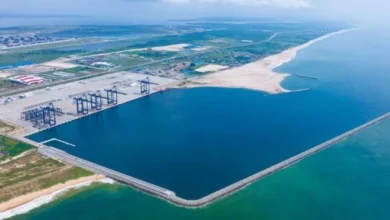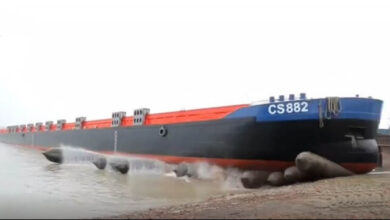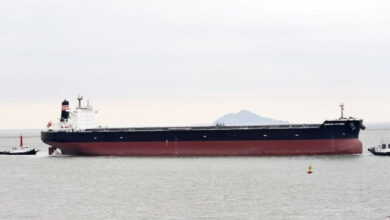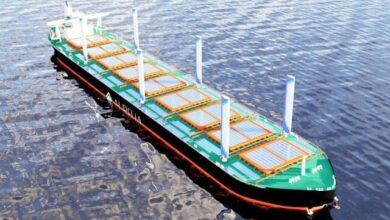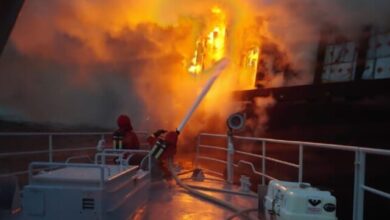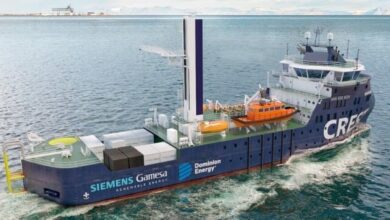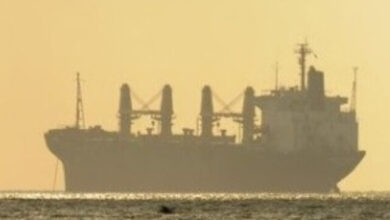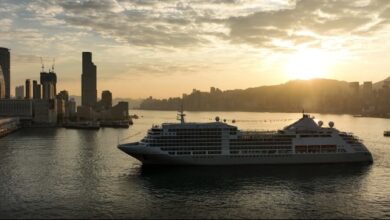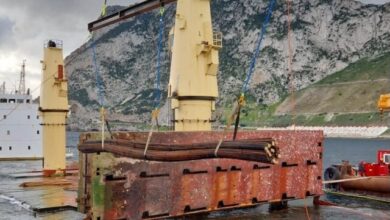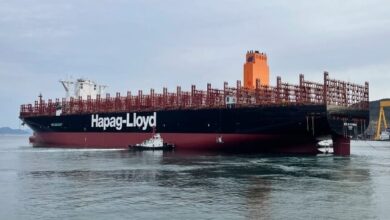

With IMO targeting a 50% reduction in greenhouse gas emissions by 2050, LNG is becoming a natural choice for shipowners in the transition to carbon-neutral fuels. Methane slip regulations are a possibility on the horizon, but Alfa Laval and global Swiss engine developer WinGD have already cooperated on a solution. The Alfa Laval PureCool system is the main component in WinGD’s iCER technology, an option for next-generation WinGD X-DF engines that slashes methane slip and significantly boosts fuel and energy efficiency.
Methane slip – the next compliance target?
As a growing number of vessels turn to LNG as fuel, many shipowners are concerned about the potential appearance of methane slip regulations. LNG produces less CO2 than other fossil fuels when burned, but a small percentage of methane can slip through the engine without being combusted. Since methane has a higher global warming potential than CO2, even this small source of emissions may come into focus in meeting IMO’s ambitious climate goals.

“With IMO aiming to cut greenhouse gas emissions by at least 50% compared to 2008 levels, LNG has a major role as a bridge fuel in moving towards a carbon-neutral future,” says David Jung, Business Development Manager at Alfa Laval. “However, the awareness of methane slip and its influence on global warming is increasing. New regulations are not unthinkable, and any improvement from today’s environmental benchmark is important. With or without regulations, WinGD’s iCER technology with the Alfa Laval PureCool system will help the shipping industry align more fully with climate goals by minimizing methane slip.”
PureCool and its contribution to iCER
Developed by Alfa Laval in close collaboration with WinGD, PureCool is the cascade exhaust gas cooling system at the heart of the iCER concept. Short for Intelligent Control by Exhaust gas Recycling, iCER is the first development presented in X-DF2.0, WinGD’s second-generation dual-fuel engine technology.
“The iCER option is a standalone installation adjacent to the engine,” says Jung. “During operation in gas mode, it improves combustion by cooling and recirculating about 50% of the exhaust gas through a low-pressure path with full turbocharger capacity. This minimizes methane slip, and the PureCool system provides a vital cooling function that makes it possible.”
Up to 50% methane slip reduction
The effectiveness of iCER with PureCool is nothing short of remarkable. Trials at WinGD’s dedicated engine test facility, which were the final step in a two-year testing program, show a methane slip reduction of up to 50%.
“This is not fine-tuning or a marginal improvement of LNG technology,” says Jung. “This is a major environmental gain that truly strengthens LNG’s profile. With the PureCool system at its heart, iCER will cut methane slip by as much as half.”
Fuel and energy savings
Beyond the methane slip reduction, the iCER solution with PureCool offers engine buyers significant operational benefits – thus creating value even prior to potential compliance regulations. When combustion is improved with iCER, fuel consumption in gas mode is reduced by 3%.
“The PureCool system improves a vessel’s efficiency along with its emissions,” says Jung. “The fuel savings inherent to iCER can have a positive impact on a vessel’s Energy Efficiency Design Index.”
A new aspect of lasting commitment
As iCER moves into the commercial phase and prepares for a first pilot installation, Jung is proud to see the PureCool system enter Alfa Laval’s compliance portfolio. It joins successful solutions for a wide range of environmental challenges, but it is the first such solution related to non-traditional fuel.
“Alfa Laval is determined to stay at the forefront of developing solutions, both for environmental protection and for fuel progress,” says Jung. “The PureCool system represents the two sides of that commitment equally. Above all, it shows our dedication to keeping customers prepared for the challenges ahead.”
Press Release


